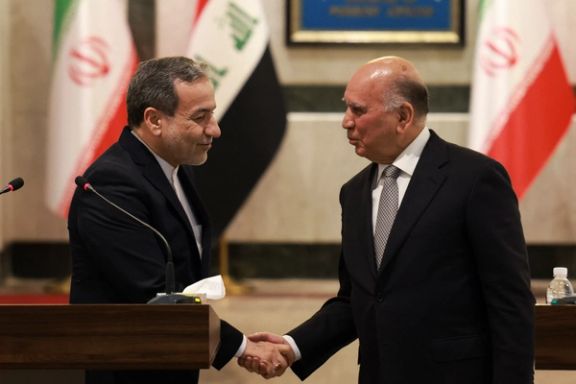Iranian Foreign Minister Abbas Araghchi told reporters on Monday that "The indirect talks between Iran and the United States with Oman's mediation has been stopped due to the situation in the region." He added that "Currently we do not see any reason for continuing the talks."
The main reason for the talks that apparently stopped long ago while President Ebrahim Raisi was in office in Tehran was reportedly Iran's unwillingness to discuss matters other than the Iranian nuclear program and the sanctions, while the United States insisted that there was no point in following the discussions without including Iran's regional ambitions and its contribution to international terrorism in the agenda.
Throughout last week, Araghchi and Parliament Speaker Bagher Ghalibaf traveled to key capitals in the Middle East and beyond, seeking to prevent Israel from launching a retaliatory strike against Iran following the October 1 missile barrage on Israel.
Israel's anticipated retaliation has sparked a deep sense of insecurity within the Iranian government and among the public. On the streets and across social media, Iranians are expressing fears of sleepless nights, anxiously awaiting Israel's response as both sides continue to exchange threats. The international media's coverage of Israeli attacks on Lebanon and renewed strikes on Gaza has only heightened the anxiety, leaving ordinary Iranians increasingly alarmed.
Araghchi's statement came a day after he issued two threats against the United States during a speech in Iraq. He warned that the US was endangering the lives of its soldiers by deploying the THAAD air defense system to Israel, which will be operated by US troops. He further added that there are no red lines preventing Iranian forces from targeting those who threaten Iran's interests.
He also wrote in a post on X: "The US has been delivering record number of arms to Israel. It is now also putting lives of its troops at risk by deploying them to operate US missile systems in Israel. While we have made tremendous efforts in recent days to contain an all-out war in our region, I say it clearly that we have no red lines in defending our people and interests."
Prominent conservative politician Heshmatollah Falahatpisheh commented on Araghchi's statement on X, writing: "After visiting six regional capitals, Araghchi’s remarks signal the failure of Iran’s delayed diplomacy. Nations are now bracing for a war that will bring nothing but regret for all sides."
During Araghchi's tour of the Middle East, it appeared that Iran was signaling to Israel and the United States that its retaliation could be minimal if Israel's strikes on Iranian targets remain controlled and limited. Meanwhile, Israeli officials ramped up their rhetoric after media reports revealed that Iran's recent attack had caused significant damage. To make matters worse, a Hezbollah drone strike on an Israeli military base killed several servicemen and wounded around 40.
Speaker Ghalibaf's visit to Beirut was aimed at demonstrating that Iranians are unfazed by Israel's military power. Videos circulating on social media showed him in the cockpit of an airliner, which his supporters used as a major publicity stunt to restore his tarnished image, following heavy criticism during Iran's recent elections.
However, aviation experts on social media said the aircraft was on autopilot and there was another pilot in charge while Ghalibaf pretended to be bravely landing in Beirut, looking out of the window “like a truck driver.” The former IRGC general is a trained pilot but not for civilian airliners.








